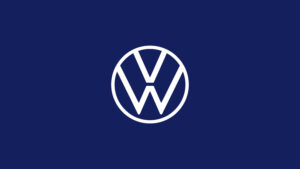
VW continues to investigate Audi, Porsche & Bentley allegations
By onInternational
Shipments of Audi, Porsche, and Bentley vehicles into the U.S. have resumed following the alleged use of a magnetic component manufactured under forced labor.
The Financial Times and Reuters reported in February that nearly 1,000 Porsche sports cars and SUVs, several hundred Bentleys, and several thousand Audis were being held by U.S. Customs.
According to multiple media outlets, the part in question is made by Chinese company Sichuan Jingweida Technology that is blacklisted by the Department of Homeland Security. Thousands of luxury brand vehicles were held up over the part because of U.S. trade policy.
The part is a LAN transformer that connects cars and computers to networks. It was found inside a control system of vehicles that were to be shipped by Volkswagen to the U.S. from Europe and Mexico, according to the Wall Street Journal. It was blacklisted due to alleged use of forced labor in China to make the part.
Volkswagen said it’s working to make sure its supply chain complies with standards and that it’s using existing procedures as well as looking for new solutions to prevent forced labor in its supply chain, according to the WSJ.
The customs law preventing the shipments was enacted in 2022, and first hit apparel and solar energy manufacturers.
According to the WSJ, one of VW’s suppliers told the automaker that its sub-supplier, Sichuan Jingweida, had been blacklisted, which led Volkswagen to notify U.S. authorities and hold imports at the border.
The issue was reportedly discovered in January. In February, VW told Reuters it “promptly notified authorities as soon as we learned of the issue from our supplier and held the vehicles in port. We have begun to replace the unit containing the relevant component and are making shipments of conforming vehicles to our dealers.”
VW also said in February that it takes allegations of human rights violations seriously, and if confirmed by its investigations, could result in the end of a supplier relationship, according to Reuters.
A Volkswagen Group spokesperson told Automotive News that the company plans to complete deliveries of impacted vehicles by the end of March.
A U.S. Customs and Border Protection spokesperson told the publication that the agency is not authorized to disclose specific company or commodity information, confidential matters or details concerning active law enforcement actions, investigations or pending cases.
Images
Featured image: VW logo provided by Volkswagen
